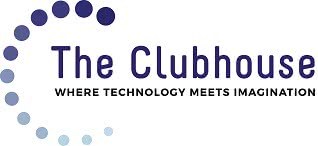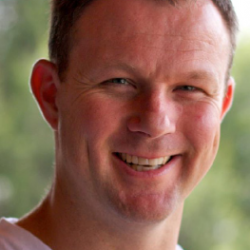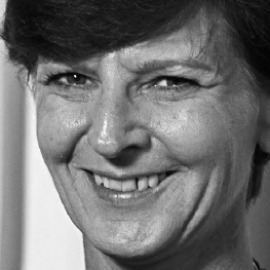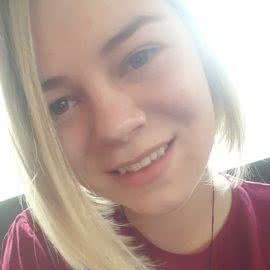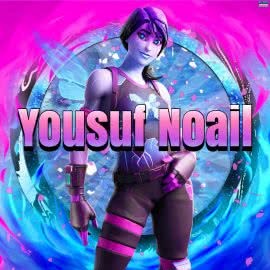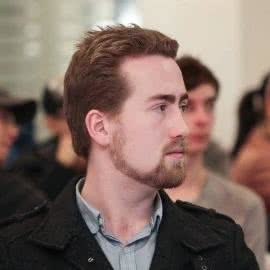A chat with Dale Rogers
What personal and professional characteristics do you bring to your role as a mentor?
I think my most defining characteristic is that I am insatiably curious about how things work.
I grew up with my grandparents. From them I learned to make things. Everything in our house was made, found and repaired or bartered. My grandfather is the person I admired the most. He taught me that there is nothing anyone can’t do themselves with a little ingenuity and some hard work.
As a young boy I rebuilt bicycles and modded scooters with whipper snipper motors. Most things that I pulled apart never worked again. As a teenager I resprayed cars and rebuilt engines. I never did well at school and would wag as often as I could get away with. My family organised an apprenticeship as an electrician for me before I turned 15. I was not going to finish school in any case.
When I finished my apprenticeship I had started a family and, to support them, I thought it best to try and “make the big money in the mines.” I went to Olympic Dam and worked in construction and maintenance at the mine and mineral processing plant. I spent 10 years at Olympic Dam before I returned to Canberra.
The professional challenges in mining and processing are like nothing I have done since. The environment is so harsh, nothing lasts long, everything needs fixing and modifying to withstand tough treatment. Every problem had a solution that could be fixed with a welder, lathe, milling machine and the right combination of sensors and controls.
Sometimes the first thing we did with brand new machinery was pull it apart to reinforce it or make it work within our context.
I didn’t know the words but I was really into Human Centred Design. I was always disappointed by machinery with confusing controls or complex safety systems. I was always trying to make machines fit people and not the other way around.
When I came to Canberra I got involved with warehousing, automation and robotics as well as integrations with business systems. Then, because I was in Canberra surrounded by highly complex political machinery, I became interested in law and politics.
Really, all I wanted to do in law was pull the covers off and figure out how the machine works. But I learned much more. A formal education is massively liberating and empowering and all the more sweet because at 15 I could never have imagined it being possible.
Now, I run my own business and I love that I spend one day out in the weather digging trenches for an underground power conduit and the next developing the information architecture to support a restaurant Point Of Sale menu.
On other days I work on developing marketing strategies and automating social media content. Running my own business also means I can chose to work on the things I enjoy and prioritise the opportunities I think are important.
What attracts you to volunteering, particularly with young people?
I really enjoy keeping my hands busy and volunteering lets me meet people in a constructive way where there is common purpose or a goal. I’m not really into sports and prefer to spend my leisure time in activities that make things that are useful, or not useful as is often the case. The skills that I learn or exchange with others are always the best part. I also learn best by doing. so volunteering lets me learn by doing things I wouldn’t normally do.
I like the way young people think. The older I get, the more solutions I discover, the more that I become attached to my favourite formulas. I’m getting set in my ways.
When young people approach a problem they use their unique experience and youthful perspective to discover new ways of solving problems. The solutions that young people make don’t work all the time and might not be best practice but they are often innovative and creative.
What inspired you to become a Computer Clubhouse mentor, and what are you hoping to gain from the experience?
I was introduced to the Computer Clubhouse through my networks in TEDxCanberra. I liked the idea of a place for young people to go and experiment with technology.
I think places like Computer Clubhouse provide confidence in tinkering and hacking with real world ‘adult’ tools and that confidence in managing and using tools is needed to find a place in the world.
I’ll gain a lot of satisfaction helping members develop their own cool projects. I will be completely stoked if members can develop a project to take to a robotics or electronics competition.
I’m also interested in YWCA Canberra’s role in the Computer Clubhouse and the opportunity to support young women to learn trade and engineering skills and help young men to express themselves through making. I think I’m going to have some fun building stuff too.
What kinds of skills and experiences are you planning to share with our Clubhouse Members?
I want to offer Clubhouse members introductory electrical and electronics skills and help them understand the role of electronics in automation, robotics and process controls.
I can also offer members introductory skills in integrating different technologies and help members understand how basic digital integration can be developed into more complex systems that support human centred design. Mostly, members should discover their own projects and I will help them explore the ways that their project could be achieved.
My business is growing and, in time, I may need to employ an apprentice electrician or trainee information designer. I would like to see keen Clubhouse members grow their own relationships and networks with me and my colleagues so that they can achieve those types of roles.
I also have networks with electronics engineers, software engineers, PHD researchers and other academics at the School of Engineering at UNSW@ ADFA.
I want to show members the beginning of a path into engineering and provide insight into where the path could lead.
